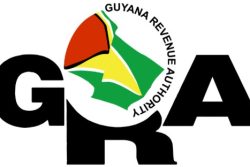When account is taken of the sustained squeeze that the Trump administration has placed on the administration of President Nicolás Maduro in Venezuela, targeting particularly the country’s oil & gas sector, the country can be considered as having been afforded some breathing space in recent months.
Recent reports emanating from Oil Price, a US industry news source, indicate that Chevron, currently the only United States company still permitted by Washington to operate in Venezuela, has been collaborating with the Venezuelan state-run firm, PDVSA, to boost the country’s oil production to its highest level in almost a year.
Chevron has boosted oil production at its joint venture with Venezuela’s PDVSA to the highest in almost a year, on account of the efforts of Petroboscan, the joint venture operated jointly by the US super major, which holds a 30% stake in the joint venture and the state-run PDVSA. The two reportedly produced around 200,000 barrels per day (bpd) with 34,000 barrels bpd being Chevron’s share.
While it is the Venezuelan economy that is taking a beating on account of the US pressures, Chevron has stayed on in Caracas at a high price with the company’s reported losses for the first nine months of last year totalling US$104 million. That being said, the US company is itself caught in a classical ‘catch 22’ situation insofar as if the US sanctions cease and it has to leave the country, it stands to lose $2.7 billion in assets. Chevron’s current sanction exemption extension lasts until April.
Washington, the Bloomberg report says, will not want this to happen since, apart from Chevron’s likely loss of valuable assets, the Trump administration will have to suffer the ignominy of seeing Chinese companies, among others, fill the gap and by extension expand their already considerable influence in Venezuela at the expense of the US.
The current preoccupation of Venezuela, the country with the largest proven oil reserves in the world, is with putting in place a contingency plan to circumvent the effects of a full pullout of US oil companies from the country. Recently, it was reported that the Maduro administration is considering giving foreign oil field operators more control over the joint venture pursuits which they share with PDVSA as a means of increasing revenue for the state. “The goal, according to a consultancy quoted by Bloomberg “is to make it so attractive, companies start to lobby harder in the U.S,”
Aside from the Petroboscan joint venture with PDVSA, Chevron is also involved in other joint ventures with the Venezuelan company. Bloomberg reports that the recent higher production contributed to Venezuela’s 100,000 bpd increase in overall production in January of this year. The country’s daily average oil production reached its highest in a year last month, at 820,000 bpd.







